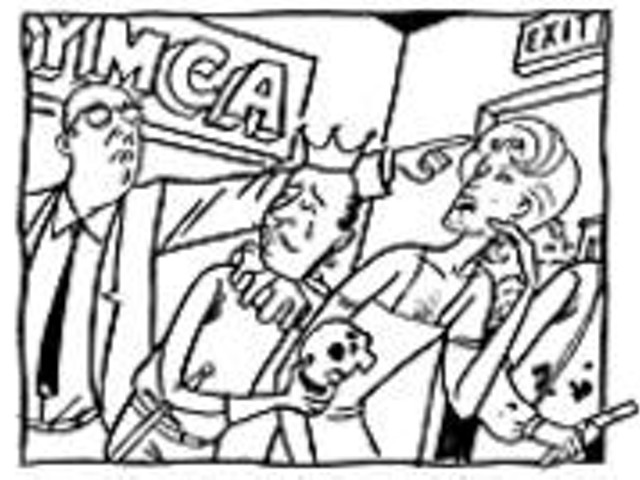The Duchess of Gerolstein has two passions in life: dressing her army and undressing her endless stream of lovers. The former has driven her treasury to bankruptcy. The latter has driven her general and ministers to distraction. The Duchess' primary amorous target is Fritz, a young private in her army whom she promptly promotes to field marshal. Alas, Fritz is in love with Wanda, a simple peasant girl; the commander of the Duchess' army, Gen. Boum, is in love with Wanda; the duchess' chamberlain and ministers have arranged for her to marry Prince Paul for his money; and the Duchess knows Prince Paul is a buffoon but has to string him along for his money. So much for plot.
The greatest improvement in opera in the last quarter of the 20th century has been the demand from directors, producers and audiences that opera singers learn to act. If comedy is the most difficult job in acting, comic opera is the most difficult acting job imaginable. To perform one of opera's tragic death scenes or histrionic mad scenes, a singer just cuts loose. She gets to wring out her vocal chops. Accordingly, these are the great scenes and great roles for sopranos.
Comic opera is different. From her hilariously ungrand entrance on a merry-go-round pony to her genuinely touching boudoir aria, mezzo-soprano Phyllis Pancella's seamless performance is the pivot on which this production revolves. Her rich, burnished voice gives weight to Offenbach's tunes and depth to her portrayal of the libidinous Duchess. Pancella's comic touch is broad when the Duchess is in pursuit of her lovers, yet subtle enough to communicate her loneliness and frustration with the duties of office.
The opera is staged with panache. Set designer James Wolk, costume designer Liz Covey and director John Going use the small Loretto-Hilton stage to comic advantage by creating outsized, overdressed characters against undersized sets, exaggerating the self-importance and absurdity of these characters. Jody Ripplinger's choreography strikes a perfect balance between overstated military movement and comedic chaos.
The supporting cast is up to OTSL's usual high standards. Timothy Nolen's full bass-baritone is the ideal counterpoint to his comic-book caricature of Gen. Boum. Harold Gray Meers' boyish tenor suits the not-as-naïve-as-he-looks Fritz. Carleton Chambers, as the doofus Prince Paul, pulls off the near-impossible, singing and acting in a Pee-wee Herman hairdo. They allow Offenbach's eminently hummable score to shine.
Though witty and clever, this is not the greatest opera ever written. But this staging of The Grand Duchess of Gerolstein is great theatrical entertainment. If you love musical theater but have been chased away by the clunky, shopworn road shows dragged into town by the Muny and the Fox, you should give this show a try. It is likely the best musical theater you'll see in St. Louis this summer.





